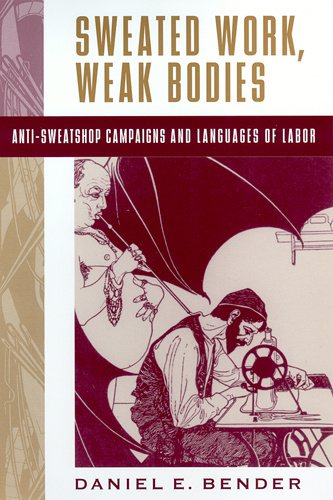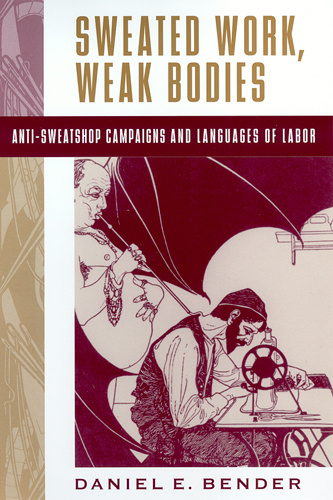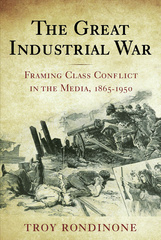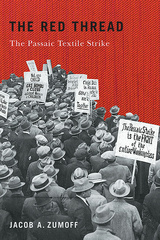Sweated Work, Weak Bodies
Anti-Sweatshop Campaigns and Languages of Labor
Rutgers University Press
In the early 1900s, thousands of immigrants labored in New Yorks Lower East Side sweatshops, enduring work environments that came to be seen as among the worst examples of Progressive-Era American industrialization. Although reformers agreed that these unsafe workplaces must be abolished, their reasons have seldom been fully examined.
Sweated Work, Weak Bodies is the first book on the origins of sweatshops, exploring how they came to represent the dangers of industrialization and the perils of immigration. It is an innovative study of the language used to define the sweatshop, how these definitions shaped the first anti-sweatshop campaign, and how they continue to influence our current understanding of the sweatshop.
Here is a tour-de-force: a specific case that illuminates not only central questions in labor and gender history, but also the methodological problem of writing after linguistic and gender turns.
Sweated Work, Weak Bodies is an impressive achievement. Blending the languages of gender and class, Bender movingly captures the meaning of the sweatshop for the home lives of immigrant workers, and demonstrates its power to shape their imaginations and their organizing strategies.
Daniel E. Bender is an assistant professor of history at the University of Waterloo, in Waterloo, Ontario, and co-editor of Sweatshop U.S.A.: The American Sweatshop in Historical and Global Perspective.
Acknowledgments
Introduction
Part I: Race, Class, Gender, and Defining the Sweatshop and Modern Shop in Progressive America
Chapter 1: Eastern European Jews and the Rise of a Transnational Garment Economy
Chapter 2: "The Great Jewish Métier" Factory Inspectors, Jewish Workers, and Defining the Sweatshop, 1880-1910
Chapter 3: "A Race Ignorant, Miserable, and Immoral" Sweatshop Danger and Labor in the Home, 1890-1910
Chapter 4: Workers Made Well Home, Work, Homework, and the Model Shop, 1910-1930
Part II: Women and Gender in the Sweatshop and in the Anti-Sweatshop Campaign
Chapter 5: Gaunt Men, Gaunt Wives: Femininity, Masculinity, and the Worker Question, 1880-1909
Chapter 6: Inspecting Bodies: Sexual Difference and Strategies of Organizing, 1910-1930
Chapter 7: "Swallowed Up in a Sea of Masculinity": Factionalism and Gender Struggles in the ILGWU, 1909-1934
Conclusion: "Our Marching Orders... Advance toward the Goal of Industrial Decency": Measuring the Burden of Language
Epilogue: Anti-Sweatshop Campaigns in a New Century
Notes
Index
Introduction
Part I: Race, Class, Gender, and Defining the Sweatshop and Modern Shop in Progressive America
Chapter 1: Eastern European Jews and the Rise of a Transnational Garment Economy
Chapter 2: "The Great Jewish Métier" Factory Inspectors, Jewish Workers, and Defining the Sweatshop, 1880-1910
Chapter 3: "A Race Ignorant, Miserable, and Immoral" Sweatshop Danger and Labor in the Home, 1890-1910
Chapter 4: Workers Made Well Home, Work, Homework, and the Model Shop, 1910-1930
Part II: Women and Gender in the Sweatshop and in the Anti-Sweatshop Campaign
Chapter 5: Gaunt Men, Gaunt Wives: Femininity, Masculinity, and the Worker Question, 1880-1909
Chapter 6: Inspecting Bodies: Sexual Difference and Strategies of Organizing, 1910-1930
Chapter 7: "Swallowed Up in a Sea of Masculinity": Factionalism and Gender Struggles in the ILGWU, 1909-1934
Conclusion: "Our Marching Orders... Advance toward the Goal of Industrial Decency": Measuring the Burden of Language
Epilogue: Anti-Sweatshop Campaigns in a New Century
Notes
Index







